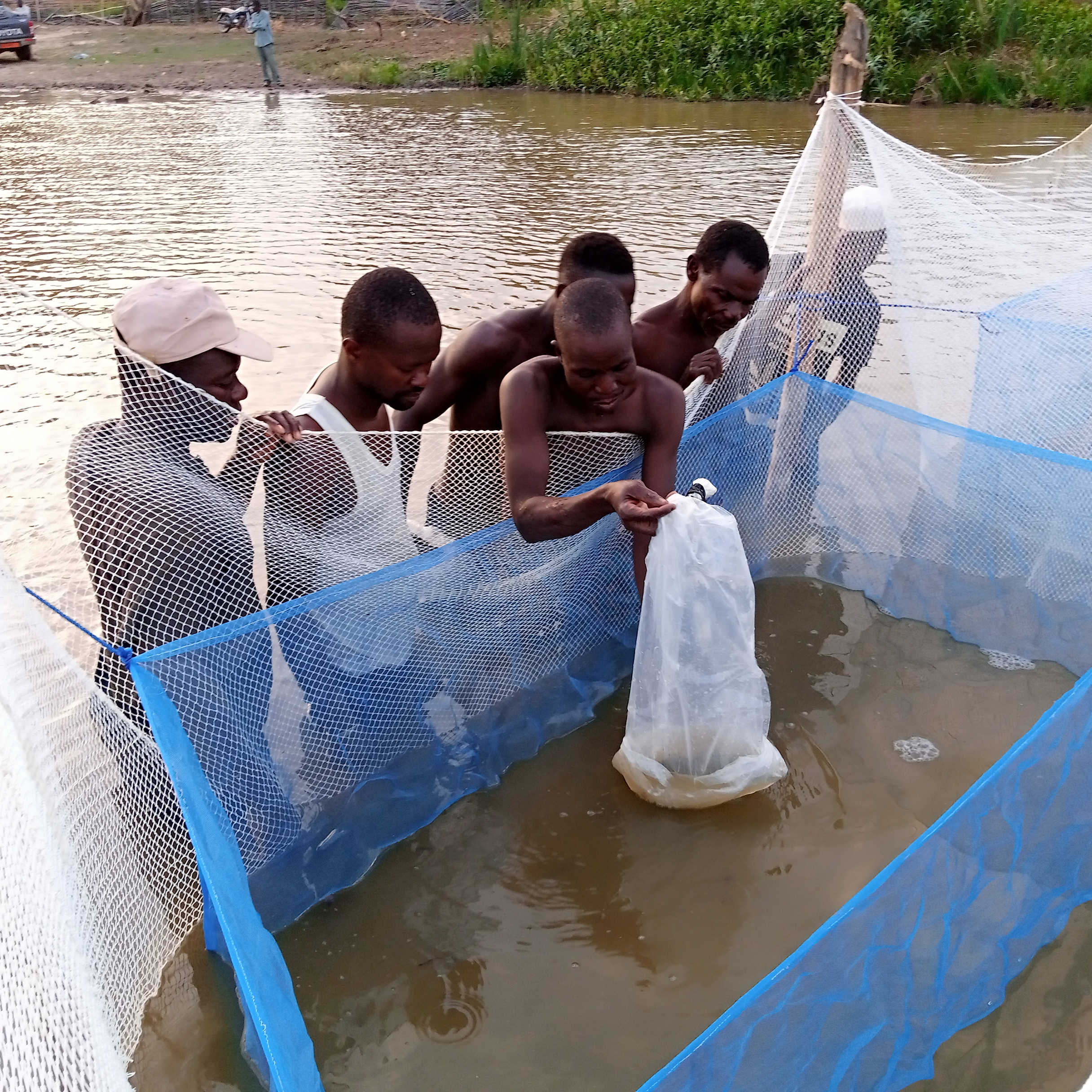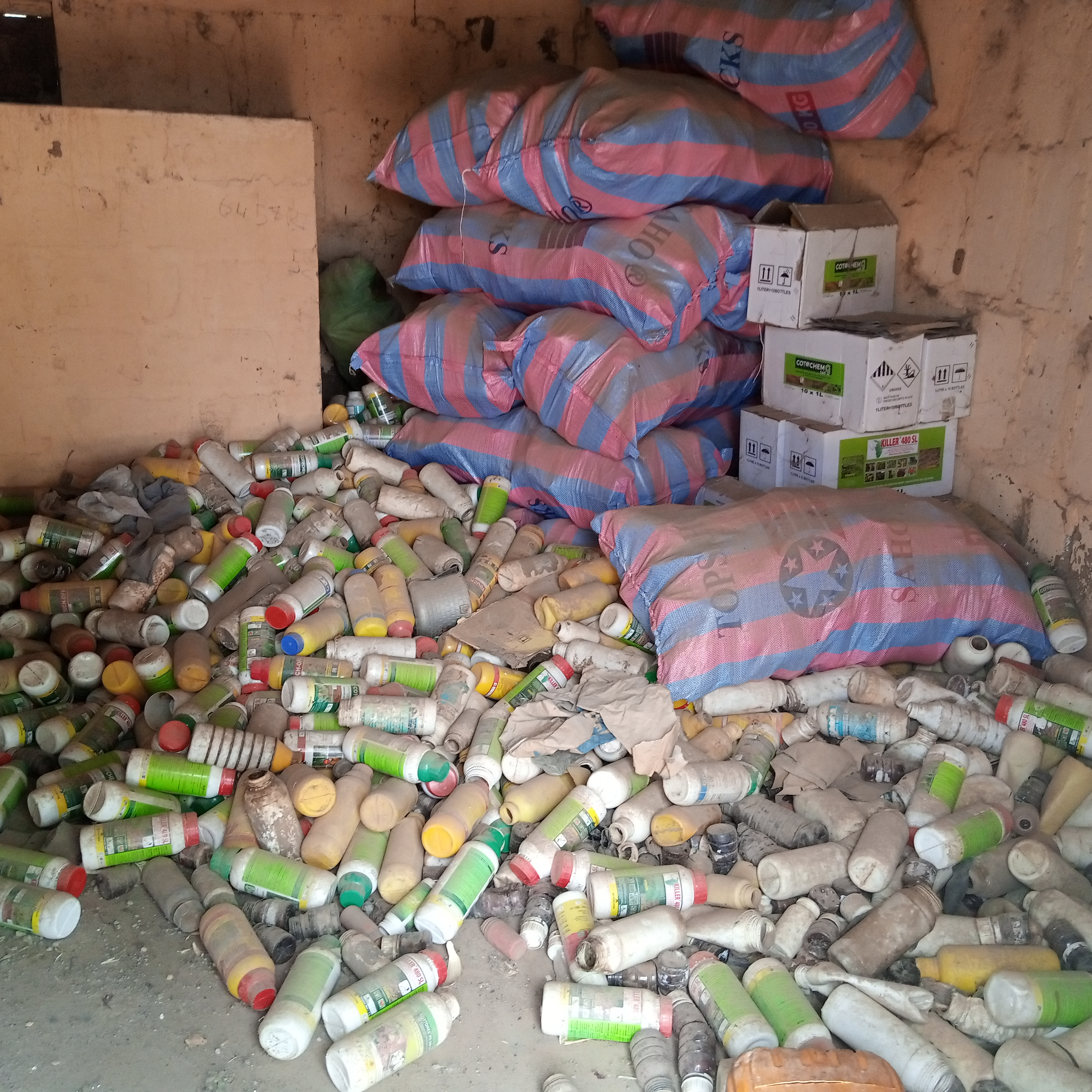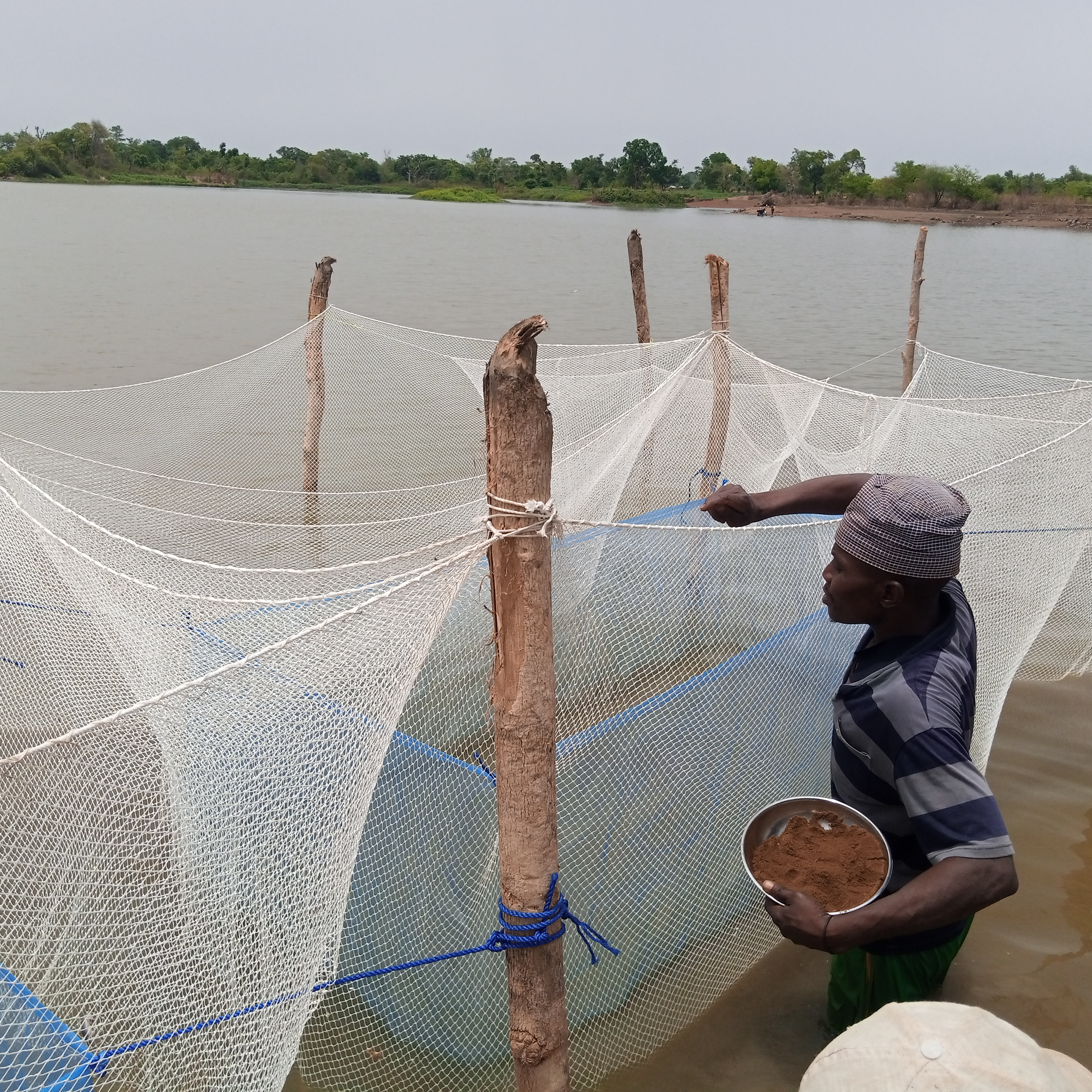
Improving the management and governance of the Alibori River (North Benin) in order to optimise the preservation of threatened species and their habitats as well as the associated ecosystem benefits!
Published on 16 December 2021The Alibori River basin (13,740 km²) is located in northwestern Benin. It is an integral part of the transboundary biosphere reserve of Parc W in Benin and of the hunting area of Djona, whose wetlands are classified as Ramsar site 1668. It covers an area of 13,740 km² and mainly includes the communes of Banikoara, Gogounou, Kandi, Karimama and Malanville, all of which are located in the north-west of Benin (about 700 km from the economic capital Cotonou). It plays an important role in the socio-economic plan and constitutes a set of aquatic ecosystems of great ecological importance on which several species depend, including Heterobranchus longifilis, Heterotis niloticus, Synodontis arnoulti, Crocodylus succhus, Python sebae, etc., which are currently listed on the IUCN red list or are fully protected in Benin.
Among the main threats to biodiversity in this watershed today are the extension of intensive cotton monoculture characterised by unsustainable cultivation and phytosanitary practices, the filling in of ponds, the non-respect of transhumance corridors, the lax application of texts regulating the use of pesticides and the sustainable management of watersheds.
Presentation of the PPI project
The “Sustainable management of the Alibori river basin (North Benin)” project is an initiative of the NGO Aquaculture et Développement Durable (AquaDeD) in partnership with the Banikoara town council. Supported by the French Committee of IUCN within the framework of PPI-5, this project mobilises the management committees of the ponds of Banikoara, Kandi and Gogounou, which are at the heart of the management of these ecosystems of great importance in the Alibori river basin. Following a participatory diagnosis carried out with the stakeholders before the project was drafted, several priority actions were identified to reduce the threats to biodiversity, productivity and the enjoyment of the services offered by these ecosystems. These were to:
– promoting environmentally sound, economically profitable and socially sustainable production and use practices restore and protect aquatic ecosystems (water quality, biodiversity, habitats, etc.);
– make available and popularise (in local languages in particular) the regulatory texts and laws in force;
– to develop sustainable and profitable fish farming activities in ponds in particular.
Our successes with the PPI project…
Despite the disruptions linked to COVID-19, the communal and presidential elections and the particularly severe and long drought this year, we have achieved several results alongside the beneficiaries. Among these, we can mention:
– The collection and securing of more than 4,000 empty pesticide containers that were previously discharged into aquatic ecosystems;
– The adoption of a communal decree by the Banikoara town hall with the aim of improving the management of the Alibori river watersheds on the territory of the commune;
– 01 collection of regulatory texts on the management of pesticides and watersheds was published and popularised in French, Bariba and Fulfudé;
– 04 local conventions on participatory management of ponds were drawn up, validated, adopted and implemented in the ponds of Batran, Sori, Tissarou and Gambané;
– Reforestation and securing of the banks of 04 ponds of ecological importance;
– 5 ha of spawning areas developed and/or protected in the targeted ponds
– 04 ponds were stocked with more than 5,200 fry of synodontis, heterotis, clarias and tilapia in order to optimise their halieutic productivity while preserving the ecosystems concerned;
– 47 members of the management committees of the targeted ponds and agents of the ATDAs and town halls were trained on good fish farming practices in the targeted ponds.
And the rest…
The results presented here are only a sketch of the progress made towards sustainable management of the aquatic ecosystems of the Alibori river basin. As far as we are concerned, several challenges still remain. The most important are undoubtedly:

– the monitoring of reforested areas, particularly the riverbanks, which, despite the actions undertaken, remain fragile and are subject to various pressures from both transhumant herders and farmers settled on the periphery.
– recycling of empty pesticide packaging that has been secured. In addition to the packaging recovered, the NGO is currently pursuing discussions with town halls for advocacy at the highest level involving SODECO (which supplies the pesticides) and the cotton interprofession (AIC) in order to organise national campaigns for the collection and treatment of this toxic waste, which is estimated to amount to several tens of thousands per year for the Alibori basin alone.
